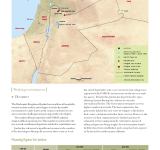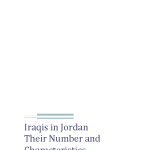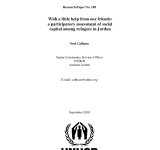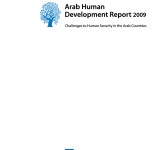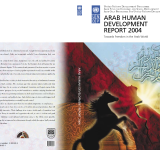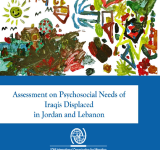Iraq
This report provides an overview of UNHCR operations profile in Jordan in 2014. It includes an summary of the situation of refugees and asylum seekers in Jordan;; their figures and UNHCR's reponse in terms of strategies and projects.
This report summarises the number of Iraqis residing in Jordan since 2007 and highlights their characteristics.
This report examines the notion of social capital. The assessment has challenged some of the assumptions about the refugees served in Jordan;; as well as the understanding of the host community. With the strong support of senior management and the informed and enthusiastic engagement of the multi-functional team;; UNHCR Jordan is now identifying new ways to support refugees in strengthening their social capital.
The fifth volume in the series of Arab Human Development Reports sponsored by the United Nations Development Programme and independently authored by intellectuals and scholars from Arab countries. The report argues that human security is a prerequisite for human development;; and that the widespread absence of human security in Arab countries undermines people's options.
The Arab Human Development Reports continue to examine the factors that prevent an Arab renaissance from taking off;; and to search for those that could empower it to advance and progress. In this third installment in the series;; the report focuses on the deficit of freedom and good governance and calls for far-reaching legal and political reforms.
This report is an assessment on the psychosocial needs of Iraqis displaced in Jordan and Lebanon. The assessment included mapping;; structured interviews with stakeholders and 200 families;; and direct observations through an innovative methodology based on Hertz’s migration paradigms with a non medical focus. The results highlighted the necessity for psychosocial interventions;; since most families were rebounding in their experience of displacement;; and the challenges posed to service providers by the first massive urban displacement crisis.
